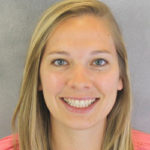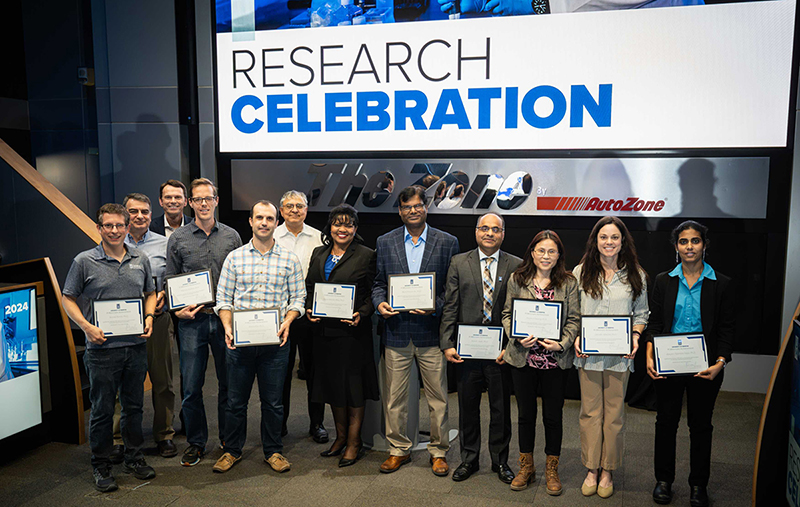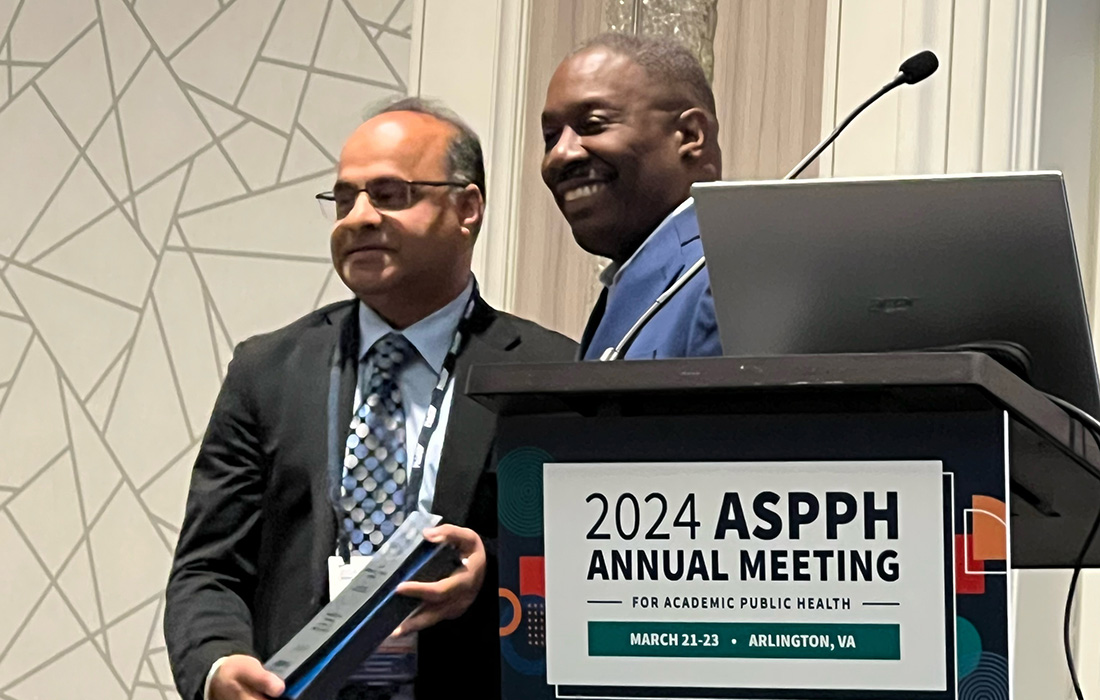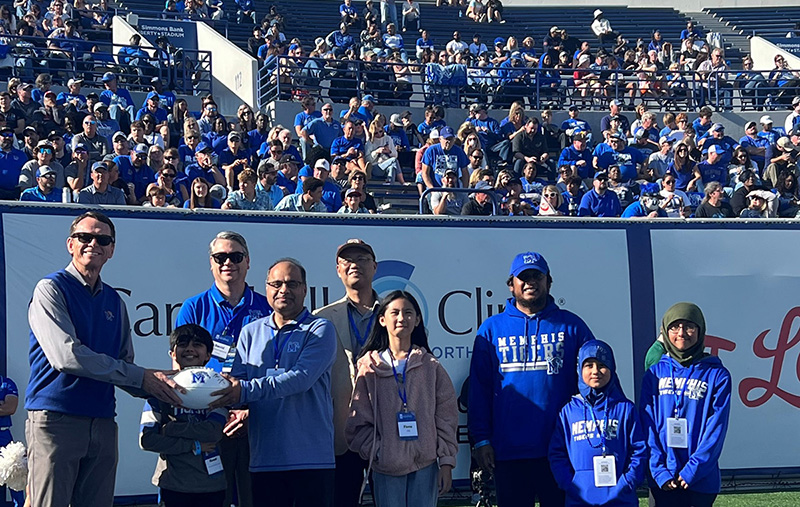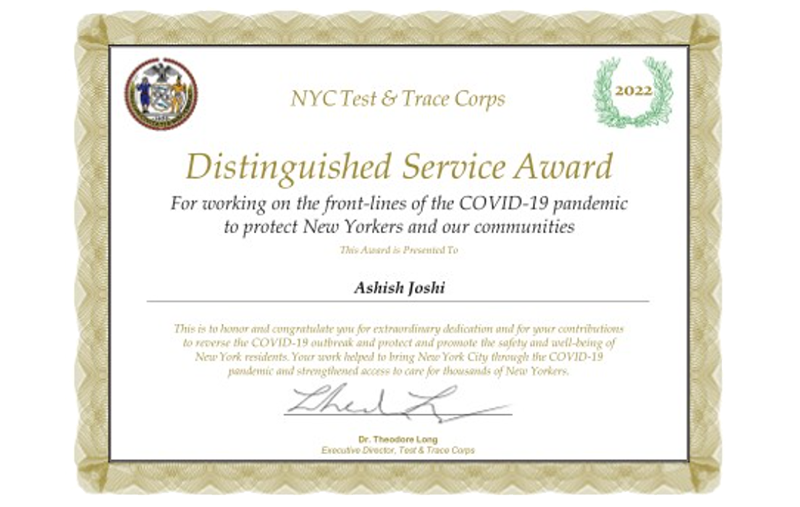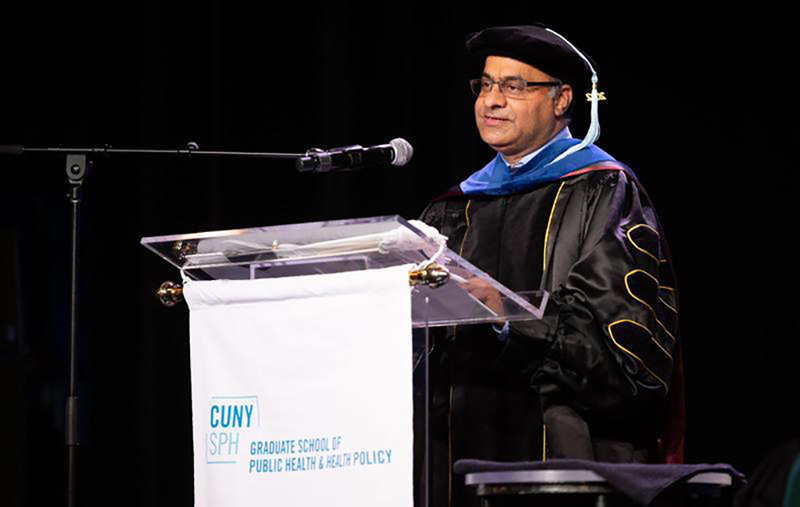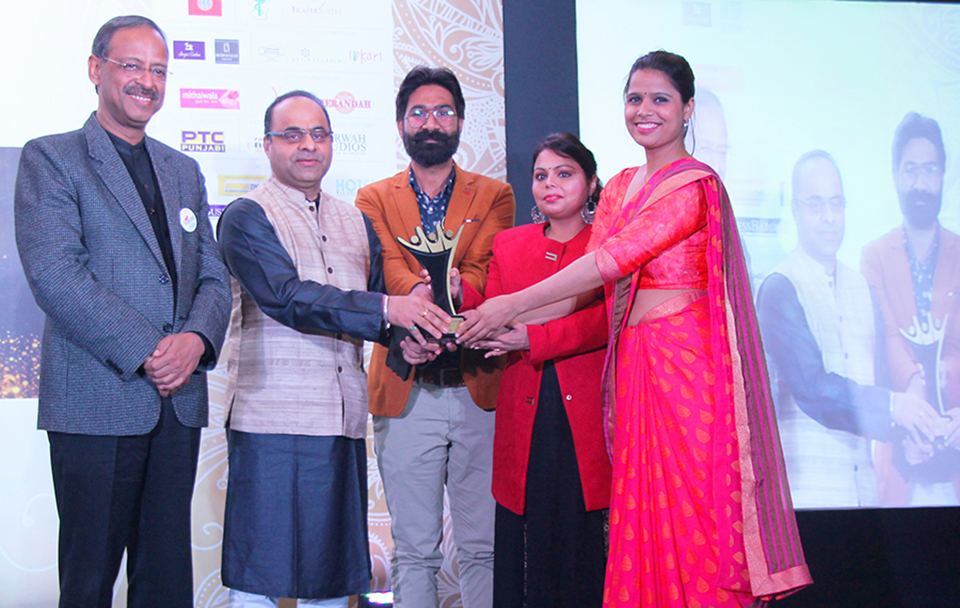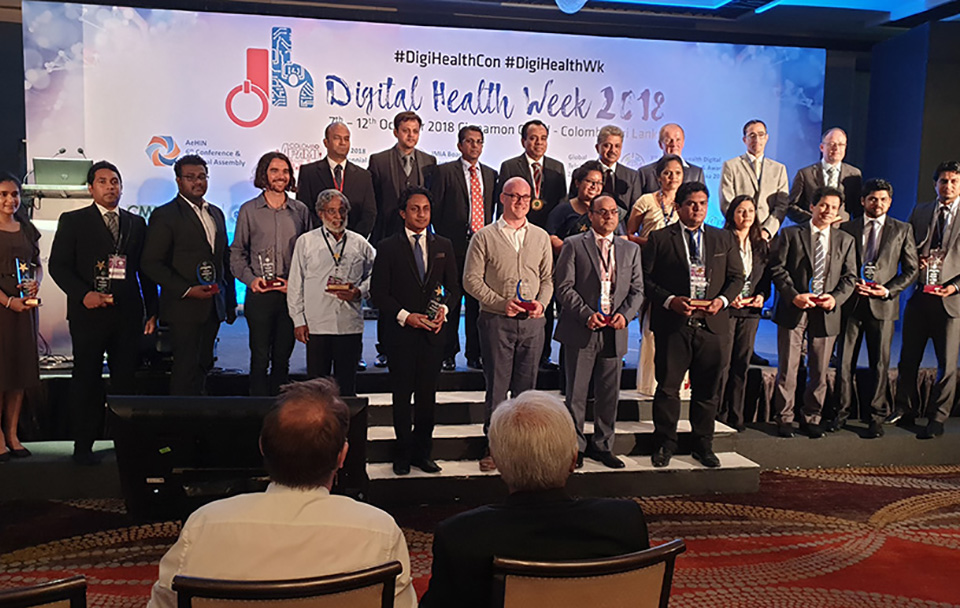ABOUT
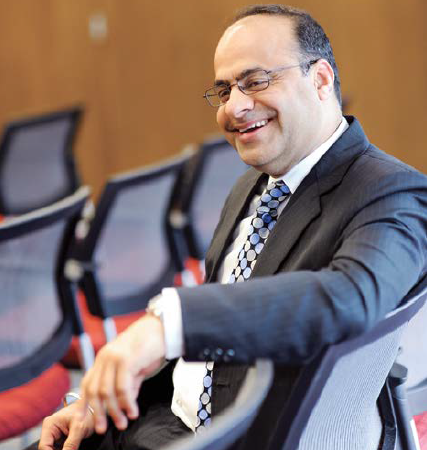
My motto comes directly from my life experience. After getting my undergraduate degree from Guru Gobind Singh Medical College, I participated in clinical practice for two years. There was a lot to learn, but I always knew it wasn’t my end destination.
I knew my destiny in life was to have a big impact on the world.
Of course, being young, I wasn’t quite sure what that would look like—I only knew I had to constantly take steps to learn and grow into the person I knew I should be. So, I moved to the United States in 2002 with only $3,000 and a dream.
Moving to the a new country brought with it a range of challenges, such as finding a place to live, knowing how best to commute, finding the right on-campus job, the pressure of limiting my cost of living and, above all, getting my coursework started. Though these are common problems most international students encounter, my extremely limited resources meant there was no room of error.
Through every struggle, I remembered my motto: obstruction is opportunity, innovation is struggle.
It drove me to complete my Masters in Public Health from Boston University School of Public Health. My goal was to promote the health of entire populations, rather than limiting myself to only patient management. I then earned my Ph.D. in Health Informatics in three years from the School of Biomedical Informatics at University of Texas, Houston by traveling between my home in Baltimore, Maryland and school in Houston, Texas.
I would describe my career journey of last 14 years as an academician, researcher, mentor, administrator, innovator and an entrepreneur.
Today, I am excited to say I’m making my ideas real.
As a Senior Associate Dean of Academic and Student Affairs of the CUNY Graduate School of Public Health and Health Policy, I am committed to creating a student-centered environment, and high quality academic programs that focus on preparing the future public health workforce with the necessary 21st century skills. I’ve mentored a variety of students and helped several publish papers, including high school students.
-
Graduation
1999Obtained medical degree (M.B.B.S.) from Guru Gobind Singh Medical College, Fardikot, Punjab, India.
-
Post Graduation
2002 - 2004Obtained Masters in Public Health (Majors in Epidemiology and Biostatistics) from Boston University School of Public Health.
-
Reserach Associate
2004 - 2007Faculty Research Associate University of Maryland, Baltimore, USA
-
Research Assistant Professor
2007 - 2010Faculty Research Assistant Professor, University of Maryland Baltimore County (UMBC), Baltimore, USA
-
PhD
2010 - 2013PhD in Health Informatics, University of Texas, School of Biomedical Informatics, Houston, USA
Assistant Professor
2010 - 2014Faculty Assistant Professor, College of Public Health, University of Nebraska Medical Center, Omaha, USA
-
Founder
2012 - PresentFounder, Foundation of Healthcare Technologies Society, New Delhi, India
-
Assistant Professor
2014 - 2018Associate Professor, Graduate School of Public Health and Health Policy, City University of New York, USA
Assistant Dean Student Affairs
2014 - 2016Assistant Dean Student Affairs, CUNY School of Public Health
-
Associate Dean of Student and Alumni Affairs
2016 - 2018Associate Dean of Student and Alumni Affairs Graduate School of Public Health and Health Policy, City University of New York, USA
-
Professor Tenured
2018 - PresentProfessor Tenured Graduate School of Public Health and Health Policy, City University of New York, USA
Senior Associate Dean of Academic and Student Affairs
2018 - PresentSenior Associate Dean of Academic and Student Affairs Graduate School of Public Health and Health Policy, City University of New York, USA
“One has two hands; one for the sky and one for the ground;
One for the sky means one is ambitious and wants to reach high.
Other hand on the ground means take others with you and not go alone.”
- Ashish Joshi
Teaching
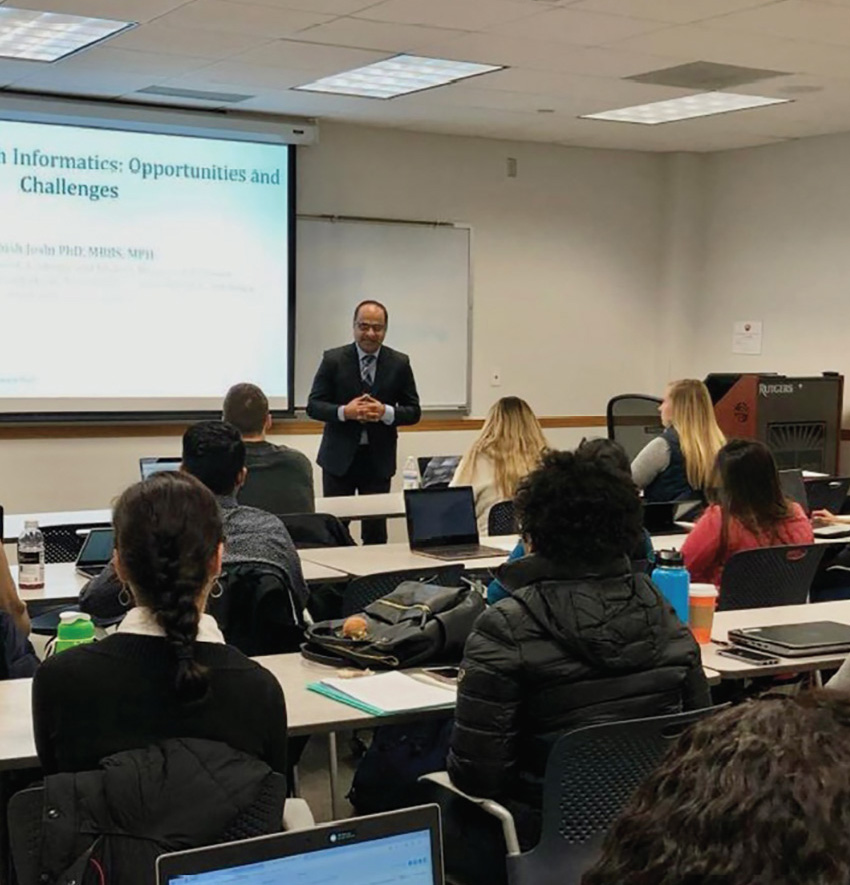
I have integrated research as an important part to my curriculum and have incorporated several different approaches to engage with students (including lectures, interactive discussions, hands on exercises, case studies, presentations, etc.). I always try to be creative and develop learning environments to help students interpret and apply important theoretical concepts using real world examples and situations. Over the years, I have continued to at the School and beyond with most of them publishing papers in peer reviewed scientific journals, winning best paper awards or being involved in international research. I have developed online, interactive, training programs over the last decade.
I have developed an online with a specific focus on use of ICTs to enhance population health outcomes in diverse settings. This program attempts to equip students and other professionals with the necessary skills to address public health challenges of the 21st century.
I am also program director of the first fully developed online . Population Health Informatics addresses the growing opportunity to use technology to implement evidence-based solutions for the improvement of population health outcomes. While most health informatics programs take a hospital-centric approach, this innovative first-of-its-kind program focuses on how to operationalize informatics solutions to address important public health challenges impacting individuals, families, communities, and the environment in which they live. Students will acquire skills on how technology can be used at the intersection of clinical care and health sciences to strengthen the efforts for preventive care at the population level. The program will offer students the skills and expertise to design, develop, implement and evaluate technology enabled interventions and solutions to address the population health challenges of the 21st century.
“I am not creating a curriculum; I’m creating and tailoring my curriculum for students to address the public health needs and the communities they serve.”
“Giving is not everyone’s destiny, but if you can do it, it is a blessing.”
- Ashish Joshi
Leadership
I employ principles of participative and transformational leadership approach to engage multiple stakeholders, in combination with data driven evidence based, technology enabled interventions and innovations to formulate policies, programs and initiatives that enhance Accountability, Transparency, Quality, Efficiency and Equity across the system.
To accomplish this vision, I have utilized SMAART (Sustainable, Multisector, Accessible, Affordable, Reimbursable and Tailored) framework to implement SMAART CUNY SPH Outcomes dashboard that facilitates collaboration, coordination, policy implementation and ongoing evaluation and enhance communication among various stakeholders including students, faculty, administrators, leadership and community at large.
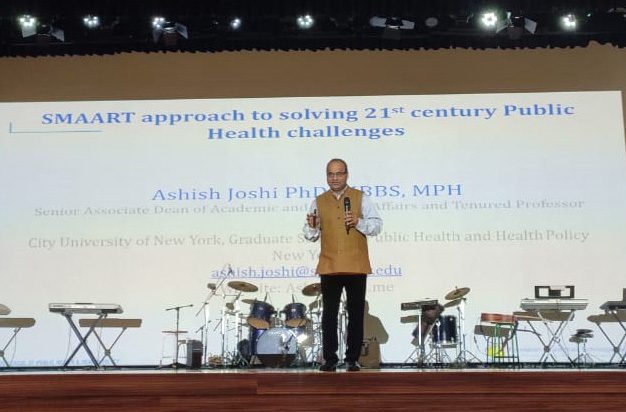
“Sometimes you have to go out of your comfort zone to rethink how you can make a social transformation.”
I joined as an inaugural Assistant Dean of Student and Alumni Affairs of the CUNY Graduate School of Public Health and Health Policy in July 2014. At that time, the school was a consortia school with public health programs offered across various CUNY campuses. In my role, established the first CUNY SPH Office of Student and Alumni Affairs, strengthened student support services and incorporated digital tools and technologies to enhance student recruitment and student engagement. In July 2016, became the Associate Dean of Student and Alumni Affairs. As one of the founding members of the unified CUNY Graduate School of Public Health and Health Policy, established the Offices of Recruitment & Admissions, Registrar, International Student, Financial Aid, Career services.
In addition, implemented an innovative technology enabled, Student Workflow Information Management System (SWIMS), to support student recruitment and admissions. Worked closely with the students to establish first time the student activity fee and helped establish the first CUNY SPH Student governance association. Further established the first CUNY SPH Alumni network to facilitate collaboration between the existing students and the alumni of the school. In 2016, became the Senior Associate Dean of Academic and Student affairs. Organized the structure of academic and student affairs and oversee Academic, Curriculum, Student, and Faculty Affairs. Collaborate department chairs to develop and implement new academic programs and formulate school wide faculty workload policy. In addition, implemented SMAART SPH Student outcomes dashboard, a data driven, evidence based model of academic management.
“Grow like an old tree; it doesn’t grow vertical but horizontal. Means with success be humble and like an old tree that grows horizontal provide shelter to many.”
- Ashish Joshi










